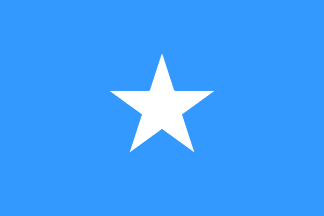
Here's an insightful article from USA Today about the struggles of African immigrants to the US:
===========
WASHINGTON — They range from surgeons and scholars to illiterate refugees from some of the world's worst hellholes — a dizzyingly varied stream of African immigrants to the United States. More than 1 million strong and growing, they are enlivening America's cities and altering how the nation confronts its racial identity.
Some nurture dreams of returning to Africa for good one day. But many are casting their lot permanently in America, trying to assimilate even as they and their children struggle to learn where they fit in a country where black-white relations are a perpetual work-in-progress.
"To white people, we are all black," said Wanjiru Kamau, a Kenyan-born community activist in Washington, D.C. "But as soon as you open your mouth to some African-Americans, they look at you and wonder why you are even here.
"Except for the skin, which is just a facade, there is very little in common between Africans and African-Americans. We need to sit down and listen to each other's story."
The 2000 Census recorded 881,300 U.S. residents who were born in Africa. By 2005, the number had reached 1.25 million, according Brookings Institution researcher Jill Wilson.
Since 1990, the African population has more than tripled in places as far-flung as Atlanta, Seattle and Minneapolis, where Africans now constitute more than 15% of the black population. The biggest magnets are New York City and greater Washington, including its Maryland and Virginia suburbs; Wilson estimates that the African-born population in each area has soared past 130,000.
As director of the African Immigrant and Refugee Foundation, Kamau deals with some of the most hard-off newcomers — dispossessed refugees from Somalia, Sudan, Liberia, Sierra Leone and other war-ravaged countries. They have been arriving at a pace of roughly 20,000 a year. Many of those from rural areas have never before used modern appliances and, in some cases, can't read or write their native languages, let alone English, she said.
"I cry a lot when I see the people being settled here," Kamau said. "Some are very frustrated, because the culture is so different from what they know."
The flip side of the refugee influx is a wave of sophisticated professionals who also are making their way to the United States. Census data from 2000 shows 43% of Africans in the U.S. have college degrees, higher than the adult population as a whole. Compared to African-Americans, the immigrants' average household income is higher and their jobless rate lower.
They include hardworking couples such as Tigist Mengesha and her husband, Girum — Ethiopians trying to build their own version of the American dream in the mostly black suburb of Suitland, Md.
Girum, 36, was granted asylum in the U.S. in 2002 because of political tensions in Ethiopia.
Tigist joined him two years later, bringing their sons Biniyam and Fitsum, now 7 and 6.
The family had lived comfortably in the Ethiopian capital of Addis Ababa, with their own walled home and servants to look after the children while Girum worked as a bank manager and Tigist as an executive secretary.
In Washington, Girum had to resume his banking career at the bottom, as a teller, but has worked his way up to assistant manager and is pursuing a master's degree at a business college.
Tigist is a family counselor at a Head Start center, advising many Ethiopians as well as a few African-American parents. "In some ways, life is harder here," she said. "But we have hope — we are adjusting ourselves to the new situation."
She notes that they can't afford hired help and scramble to raise their sons while working full-time. On the bright side, however, they recently bought a townhouse.
Tigist said her relations with African-Americans have mostly been amicable, though on occasion she has sensed ill-feelings. "Some people, they treat you as if you don't know anything," she said, "as if you're from the jungle."
Lack of knowledge can cut both ways. Tigist is gradually learning details of America's racial history, even watching the TV mini-series "Roots."
"I feel bad about that racism — but when I come here now, I didn't feel it at all. I would never think someone would discriminate against me," she said. "I don't have any bad feelings for black Americans, but I am not one of them. ... I'm not a black American, I'm not a white American. I'm an Ethiopian."
Democratic president candidate Barak Obama, son of a black Kenyan father and white American mother, has wrestled with similar issues. Some skeptics have doubted whether his background will appeal to black voters, and he recalled in his memoirs that he was rebuffed by national civil rights groups when he was younger.
Jacqueline Copeland-Carson, an African-American scholar with Hubert H. Humphrey School of Public Affairs at the University of Minnesota, is optimistic that African immigrants and African-Americans will outgrow any strains, which she blames partly on stereotypes.
"Some Africans view African-Americans as violent, lazy, intellectually inferior — U.S. blacks are taught that the Africans are less civilized, not as capable," she said.
"As people get to know each other in churches and mosques and community associations, they're beginning to realize they've been taught lies about each other. They're starting to understand they share many things in common."
In the District of Columbia, as in some other cities, there has been occasional friction between recently arrived Africans and the entrenched, politically powerful black American community.
Some African-Americans bristled at a proposal — subsequently withdrawn — to officially nickname a bustling one-block stretch of 9th Street as "Little Ethiopia." More broadly, civic leaders say there is some resentment among working-class African-Americans who view the newcomers as threats to their jobs in such fields as health care, civil service and hotel work.
"Sometimes it's very overwhelming to the African-American community," said Abdulaziz Kamus, an Ethiopian-born activist who works on numerous immigrant issues. "They feel threatened that we are coming here and demanding jobs. If I was an African-American, I would feel the same thing."
In an overture to the newcomers, the city government last year formed an Office of African Affairs. But even this gesture ruffled some feathers — not all black American leaders felt it was needed, and some Africans say they have been disappointed by a lack of dynamism in the office's first few months of operation.
Bobby Austin, a vice president at the University of the District of Columbia, has been one of a relative handful of prominent African-Americans in the city to delve deeply into the tensions and misunderstandings. He and Kamus have promoted townhall dialogues between members of the two communities; some sessions are to be shown on a local cable channel this summer.
American blacks, Austin said, do not see themselves as immigrants and often do not comprehend the Africans' desire to come here.
"We are going to have to learn a new narrative," Austin said. "We will have to learn to work with them, and they will have to learn to work with us."
While African-Americans trace their presence in America back to the slave trade of the 17th and 18th centuries, the modern surge of Africans dates to the post-independence era of the 1960s and '70s. Persistent conflict and corrupt government in much of Africa prompted more to follow in subsequent years, and the surge increased in the 1990s due to the Diversity Visa Lottery, a federal program boosting immigration from countries that traditionally sent few people.
The largest groups of Africans in the U.S. are from Nigeria, Ethiopia and Ghana, but the influx is diverse. The refugee program, for example, is accepting people from roughly two-dozen African countries each year; more than 200,000 African refugees have been taken in since 1980.
Some Americans, black and white, assume the Africans must share a common culture and outlook with one another, when in fact they may feel no deep bond with another ethnic group from their own country, let alone with Africans from distant corners of the continent. Immigrant leaders trying to encourage solidarity among Africans have found that task challenging.
There has been a wide range of cultural clashes — some serious, some bemusing — as the new Africans fan out across the country. Some polygamous families have managed to settle in the U.S., despite laws forbidding that. Women's rights activists and health officials have been on the lookout for cases of female circumcision — illegal in the U.S. but a common practice in some African regions.
Wanjiru Kamau, the Kenyan activist, says many newly arrived Africans find American culture bewildering. She tells them not to look down, but into the eyes of a person they are speaking to; she has fielded complaints that African nurses, accustomed to the relative din of hospitals in their homelands, talk too loudly on the job in America.
"That's how they talk where they came from," Kamau said. "Sometimes we fail to realize where we are."
Nurses and doctors are among the tens of thousands of well-trained Africans who have settled in America — contributing to concerns that a brain drain to Europe and the U.S. is depriving Africa of badly needed talent. Some of the expatriates say they are doing more good in the United States, where African immigrants earn enough to send back an estimated $3 billion a year to relatives in their homelands.
"The conditions at home often make it difficult to go back," said Nigerian native Ike Udogu, a professor at Appalachian State University who came to North Carolina 36 years ago.
"Here, there are great facilities," he said. "You simply want to do your work in a society where your life is not in danger."
Udogu has a thoroughly Americanized son who just finished college in Indiana. Likewise with Ghana-born Kukuwa Nuamah, 49, of Vienna, Va., a performer and instructor of African dance whose two daughters have completed college in Virginia.
"You can't hear one African accent from our children," Nuamah said. "They go back to Africa and get to know the culture there. When they are here, they feel fully American. ... They have both worlds."
In greater Washington, the Ethiopian and Nigerian communities are large enough so that immigrants could isolate themselves and minimize contact with American culture.
"For me, that's not healthy," said Abdulaziz Kamus, who has tried to encourage African taxi drivers — and other immigrants — to become politically engaged,
"You could be here 20 years, but if you don't start participating, you're not part of America," he said.
"What excites me every day is that I could go protest without fear of deportation or being sent to prison. ... I could lobby, jump up and down, start my own business, and nobody could question me. The country I was not even born in is allowing me to dream."
Source: USA Today
















